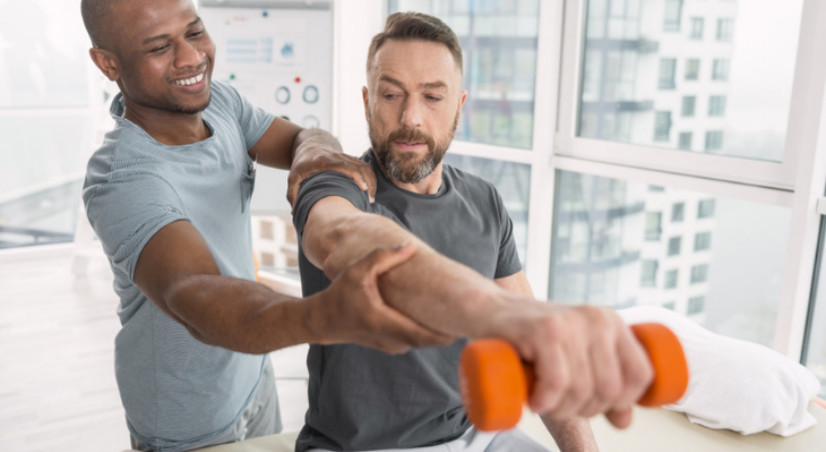
How Moving Helps Your Injuries Heal
Although taking it easy might seem like the best strategy after an injury, spending too much time on the couch may be a bad idea. In fact, inactivity could actually make your symptoms worse and prolong your recovery time. Movement triggers your body's natural healing response and reduces your risk of chronic pain.
The Benefits of Moving
When you injure yourself, your body immediately activates its self-repair function. White blood cells flood the injured area and begin repairing the damaged tissues and cells. Increased blood flow causes inflammation and is the reason that you may notice swelling, stiffness, or redness around your injury.
At this point, rest is a priority. Resting gives your body the time it needs to begin the healing process, but too much rest can slow healing, increase stiffness, and other symptoms.
In most cases, you can begin moving one to two days after your injury, depending on the type and severity of the injury. While it's not a good idea to participate in high-impact or vigorous activity, gentle exercises and stretches can be an important part of the healing process.
Incorporating movement in your recovery will:
- Reduce Inflammation. Although inflammation is essential when an injury first occurs, it can cause lingering stiffness and pain when you move your joints. Movement relieves inflammation naturally, helping you to return to your normal activities faster.
- Break Up Scar Tissue. Your body produces scar tissues to repair muscles, tissues, ligaments, and tendons. Unfortunately, your body may make more tissue than you need to heal your injury. Scar tissue build-up restricts the movement of muscles and joints, which causes pain and reduced range of motion.
- Improve Blood Flow. Injuries can restrict blood flow, depriving your tissues of the oxygen and nutrients they need to heal. Movement improves blood circulation and promotes healing.
- Lubricate Your Joints. Fluid surrounding your joints lubricates the bones and helps nutrients penetrate the tissues. Activity keeps the fluid flowing and helps you avoid painful, creaky joints.
- Help Avoid Chronic Pain. Being inactive may increase your risk of long-term pain, stiffness, or mobility problems.
How Your Chiropractor Can Help You Get Moving
Moving can be difficult if you're experiencing stiffness, pain, and inflammation. Pain relievers and muscle relaxants only offer short-term relief of your symptoms, while chiropractic treatment targets the source of the problem. Spinal manipulation, massage, soft tissue mobilization, traction, ultrasound therapy, and other treatments your chiropractor offers help by:
- Breaking apart scar tissue
- Realigning your spine
- Easing pressure on nerves, muscles, tendons, and ligaments
- Improving flexibility and range of motion
- Decreasing inflammation
- Relaxing tight muscles
- Releasing endorphins - your body's natural painkillers
Chiropractic treatment offers an effective way to manage pain and could help you increase your activity level. In a study published in Physical Medicine and Rehabilitation in May 2018, researchers revealed that spinal manipulation combined with other therapies improved low back pain intensity and disability in active-duty military personnel.
The treatment is effective for treating many types of injuries, including sprains and strains, whiplash, tendonitis, bursitis, rotator cuff injuries, knee conditions, concussions, herniated discs, shin splints, and dislocations.
Chiropractic treatment will ease your pain and get you moving again. Contact us to schedule a convenient appointment.
Sources:
Healthline: Why Scar Tissue Pain Occurs and What You Can Do About It, 3/7/19
BMC Musculoskeletal Disorders, 4/8/10
Chiropractic Economics: The Latest Research on Chiropractic Care for Faster Injury Recovery, 3/6/20
